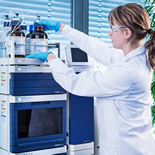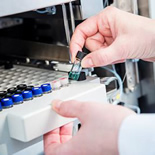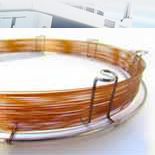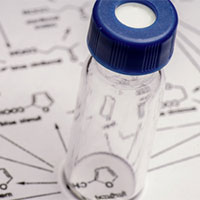Chromatography Products, Solutions & Resources
Avantor Chromatography and Spectrometry Products
Chromatography and spectrometry are important techniques that have many scientific, academic, and industrial applications. Avantor has a comprehensive range of equipment, products and services that can help you improve efficiency and outcomes in your laboratory.

Liquid Chromatography - Analytical
Liquid chromatography is one of the most widely used analytical techniques in the chemical and life sciences, with applications ranging from pharmaceuticals to the environment. Avantor can help you equip your lab to make it exceptional at separating compo

Liquid Chromatography - Sample Preparation
Proper sample preparation is a very important step in any chromatography process. Avantor carries a complete line of the equipment and products you need to complete tasks ranging from simple filtration to complicated derivatization.

Gas Chromatography
Gas chromatography uses gases such as helium or hydrogen to carry samples into a chromatograph for analysis. Avantor carries the equipment and products you’ll need for your lab.

Mass Spectrometry
Mass spectrometry is an important tool that can help labs precisely identify and quantify specific molecules. Because of its precision, mass spectrometry has become an important tool in measuring food quality and safety.
Chromatography resources and solutions
Chromatography is a chemical technique that physically separates a mixture into its component parts. It is a highly effective technique that is used in multiple industries, from food to pharmaceutical, and across all branches of science. Often, it is the only way to separate components, down to the molecular level, from complex mixtures.
Liquid chromatography and gas chromatography are the dominant forms of chromatography. These broadly used techniques include multiple types of chromatography. For instance, high-performance liquid chromatography (HPLC) is a fast, effective process used to maintain product purity and to separate different biological molecules- like proteins and nucleic acids. Affinity chromatography, also a type of liquid chromatography, relies on molecules’ ability to bind together, and then the elution (“washing off”) of non-binding molecules.
Chromatography usually begins with a sample that has individual components that require separation and identification. Components in the sample can be of either solid or liquid origins. A sample mixture can be liquid (for liquid chromatography) or a gas state (for gas chromatography).
There are two phases in chromatography, the mobile phase and the stationary phase. The mobile phase either carries the sample mixture to the stationary phase or disrupts the sample mixture from stationary phase during elution. In liquid chromatography the sample should be compatible with the mobile phase. For gas chromatography the sample, when injected into the process, will convert into a gas—if the sample began in a liquid state.
During the stationary phase the sample mixture moves through a second material, often a solid medium, that differentiates and separates the molecules.
Molecules that share characteristics such as structure or size will group together because they travel through the chromatographic process at the same rate. Charged states of molecules (all matter is either positively, negatively or neutrally charged at the molecular level) in a mixture may cause molecules to behave in a similar like-with-like pattern, or the exact opposite.
At the end of the chromatographic process, the molecules have sorted into distinct, separate, groups.
What is chromatography used for?
Chromatography is both broadly used, and highly versatile. It is part of the analysis, production and manufacturing processes in a variety of industries ranging from biopharma and healthcare to food and beverage.
Sometimes the purpose of chromatography is straight forward analyses. Testing food and beverages for quality, and chemical exposure, is very common.
But, because chromatography is used to both quantify and qualify, it has other uses. For instance, it is a well-established technique to analyze small molecule therapeutics and their related substances for characteristics like stability. This allows industries to change formulas, or storage methods, as needed to create better stability or longer shelf-life.
Often, though, the goal of large-scale liquid chromatographic processing is to extract or harvest a specific set of molecules or proteins to use in a biopharmaceutical product- like a therapy or vaccine. In vaccine therapies, chromatography is used at the discovery phase—to find the antibodies most effective at fighting a virus—and then again at the production phase when those antibodies are needed in quantity.
Because chromatography is so widely used, Avantor offers a wide range of highly stable, low-pH, low salt/high salt, equilibration, elution buffers, and buffer components that support chromatographic workflows in multiple industries. Our skilled associates and quality products support multiple types of chromatography techniques at each step of the process, from the bench to the production floor.
Avantor is the choice for chromatography
Chromatography can be a complex technique whether you are doing straight forward analysis or large scale biomanufacturing production. Avantor has the resources to make your chromatography projects run efficiently, and effectively. From columns to elution buffers, Avantor has you covered when it comes to selecting the best products and technology for your specific application. We make sourcing simple and support you with our decades of expertise.
 Application Notes
Application Notes